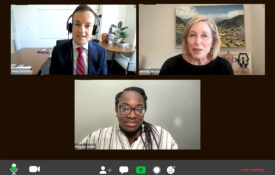-

Repeated Exposure to News Headlines Makes Behavior Seem Less Unethical
From frequent smartphone notifications to repetitious TV news programs, we often experience repeated exposure to various news headlines as we go about our daily lives. When the news provides stories of wrongdoing, that repeated exposure may influence our own sense of morality, making those narratives seem more true and less unethical.
-

For Whom the School Bells Toll: New Psychological Research for the New Academic Year
A collection of research published in the APS journals in 2022 and 2023 related to peer relationships, pandemic-related learning losses, the positive impacts of growth mindsets, and much more.
-

Public May Overestimate Pushback Against Controversial Research Findings
Do researchers overestimate the risk that certain research findings will fuel public support for censorship, defunding, and other harmful actions?
-

Career Crossroads? How to Map Your Journey Beyond Academia
A wide range of companies, organizations, and government agencies need psychological scientists. Tips from insiders on how to navigate the journey.
-

Has Academia Become More Gender-Fair for Women? Findings From an Adversarial Analysis of Gender Bias
“Happily, the realities of today no longer support the belief that [STEM] jobs are pervasively biased against women.” But the findings come with caveats. New Psychological Science in the Public Interest.
-

Alison Gopnik Receives 2024 Rumelhart Prize in Cognitive Science
The award is named after David Rumelhart, known for his contributions to the formal analysis of human cognition. Gopnik (shown with her grandchild): “The reason I study children is to try to make very general discoveries about how the mind works.”

